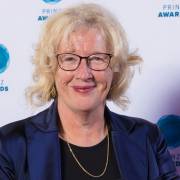How to align group dynamics

Are you in the process of applying for board roles? Sadly, my last experience ended with the dissolution of the board and the charitable trust it supported. It felt like a couple of wasted years.
Processing exactly what went wrong has taken some time. Meetings often seemed like an exercise in futility because we never seemed to get anything done. We had good intentions, we were serving a noble purpose, many board members represented significant stakeholders who wanted to see things happen. However, month-on-month it seemed we delivered very little value.
Why? Because we failed to identify the risks posed by our group dynamic. We had skills and experience to bring to the table, but our personalities and communication styles did not work together to catalyse us into action and deliver as a team.
As a PR consultant, I’ve undertaken many culture reviews during the past 10 years for fast-moving consumer goods, infrastructure and professional services businesses and have seen how constructively addressing group dynamics can powerfully align people in the service of their shared objectives.
Perhaps the very qualities that make us successful in our individual careers can make us ineffective around a board table. Being forthright, leading from the front, forming strong opinions, providing decisive advice, quickly identifying risks and suggesting actions tend not to be qualities that encourage diversity of thinking or the contributions of people who are more introverted by nature.
Expecting others to ‘speak our language’ – whether it is the language of personality, numbers, emotional intelligence, or indeed just the cultural language we grew up with – as the only way to get us to take them seriously, is a hiding to nothing.
Unfortunately, the process of board recruitment seems to lead down this path with its reductive focus on skill set rather than the broader benefits on mindset.
Has a board recruiter ever sought to understand your personality, for example, and how that might predispose you to working effectively with others on a board. The conversation tends to be, ‘We need someone who is good at (insert professional skill set)’.
And yet boards are a team game. It is supposed to be about the group and its shared contribution. That’s why we gather in a room (hopefully), rather than simply reading our board papers at home and emailing in our points or questions for central processing. The dynamic between the people in the physical space on the day matters.
“We come to a board meeting to hear what others contribute, not to listen to the sound of our own voice.”
So, when we talk about the value-adding board, instead of asking ourselves, ‘How did I make a contribution as a result of my skills and experience?’ to assess the value we have contributed, a better set of questions might be:
-
- How did I encourage other board members to speak?
- How did I ensure I really listened to what they had to say?
- In what ways was I able to consider different points of view and change my mind?
- How did I set aside my own point of view to really hear what the rest of the group had to say?
After all, we come to a board meeting to hear what others contribute, not to listen to the sound of our own voice.
Too often boards feel like a performance for the benefit of the chair. An ego-driven chair might pit board members against each other for the sport of it. A laissez-faire chair may let the meeting meander rather than guide it to keep everything as comfortable as possible. A dictatorial chair may consider a meeting a success when their position has been adopted on every point. We have all seen these kinds of chairs in action.
The value-adding chair, however, should work to make sure everyone in the room contributes so the sum of the whole is greater than its parts. Our role as board members is to support that mission by managing ourselves and our own behaviour to allow that to happen.
So, starting with myself, I’m going to practise asking better questions and listening better. I’ll be listening for thoughts and opinions that aren’t like mine. I’ll be looking for people who speak a different language.
I’ll be in the team not trying to lead it, and I’ll be asking myself at the end of each board meeting, ‘Did I add value?’
 Jacquie Boer MInstD is a director and PR consultancy principal. She has served as a trustee on a number of organisations and is currently a director of Innovative Waste Kaikōura and a member of the Public Relations Institute of New Zealand (PRINZ) board and a PRINZ Fellow.
Jacquie Boer MInstD is a director and PR consultancy principal. She has served as a trustee on a number of organisations and is currently a director of Innovative Waste Kaikōura and a member of the Public Relations Institute of New Zealand (PRINZ) board and a PRINZ Fellow.